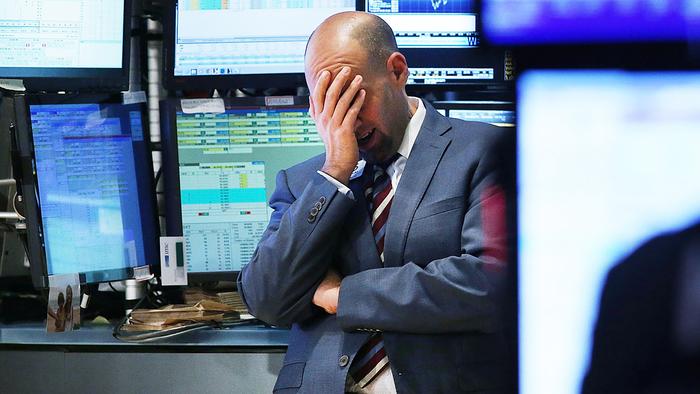"Those Of Us Who Are Being Honest Truly Don't Know What Happens Next... Nor Does Anyone Else"
By Eric Peters, CIO of One River Asset Management
Swipe
“The past year has seen many countries promise to achieve net-zero emissions by mid-century. The next must focus on curtailing emissions in the coming decade. The 17bln-20bln tons of greenhouse gases that need to be cut by 2030 correspond to a 45% drop from 2010 levels. Even then, there would be only a 50% chance of limiting global warming to 1.5°C says the Intergovernmental Panel on Climate Change. Yet current nationally determined contributions (NDCS) will result in a rise in emissions, not a drop, by 2030,” reported The Economist.
It should be rather obvious to everyone at this stage that global governments, in aggregate, have no intention of meeting the emission reduction goals they set for themselves. That is in no way due to a lack of desire. But rather an unwillingness to pay the price required to meet the deadline. For the first time in decades, we are confronting problems that cannot be solved with the swipe of a pen. For as long as anyone can recall, each problem that appeared intractable was solved by kicking the proverbial can down the road and accruing more debt.
How will national and geopolitics be altered by a problem that cannot be solved solely with a swipe? The global pandemic will be a helpful guide. Although a far smaller problem than climate change, Covid also affected all and defied a strictly monetary solution. Wealthy nations prioritized their interests over others. China deflected blame, intimidating any nation that dared press for answers. The most vulnerable suffered disproportionately. No globally coordinated effort was made to marshal every possible resource to tackle the problem. And to soothe the stresses, unprecedented sums of money were created at the swipe of a pen.
Don’t Know
I don’t know why 10-year US gov’t bonds yield 1.55% when CPI is 6.2% and inflation appears increasingly persistent. I have some theories to be sure. But I don’t definitively know. Nor does anyone else. And I don’t know what the Fed will do if inflation stays high, but interest rates remain low. It might be that it does little, or nothing. And if that’s what happens, I don’t know why stocks and housing wouldn’t keep surging. But if that started happening, I’m not sure what would stop everyone from borrowing more and more to leverage up.
And I don’t know what the Fed would do if everyone started leveraging up, while inflation remained firm, but interest rates remained low. If they hiked as gradually as markets now price, I’m not sure why that such an incremental rise would dampen speculative demand. If the Fed hiked to curb speculation in the name of promoting financial stability and this caused a sharp stock market decline, even as inflation remained high, I’m not sure the Fed could quickly reverse those hikes without sparking a run on the dollar, which would then lift inflation.
But what I really don’t know is how markets start to behave when there are so many things that people don’t know. Naturally, there are always many uncertainties when it comes to such things. But the new set of unknowns we face today arise from the reappearance of inflation after many decades of dormancy. And because the economy is vastly different from when we last endured an inflation, while our financial markets are wildly more complex and interconnected, those of us who are being honest truly don’t know. Nor does anyone else. Tyler Durden Sun, 11/21/2021 - 19:30
http://dlvr.it/SCxVDv

No comments:
Post a Comment